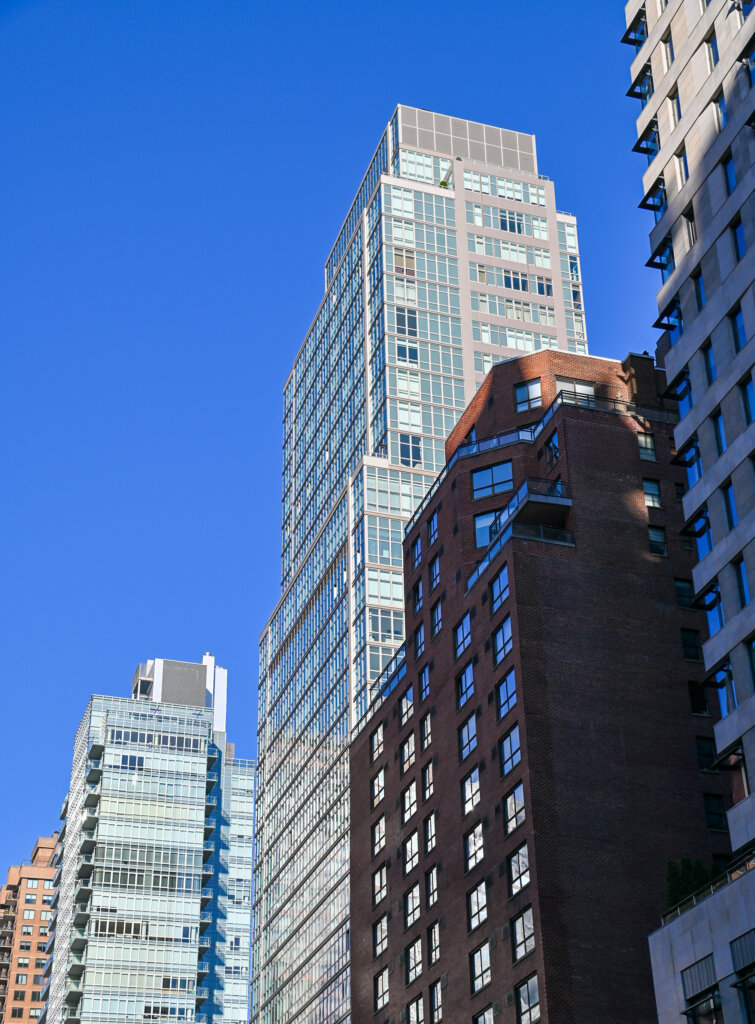What a Revolting Development: Where do you turn if your brand-new condo is falling apart?
By: S. Jhoanna Robledo
May 28, 2007
In 2004, Meggan Berley and her husband, emptynesters in Dobbs Ferry, ditched their longtime rental and bought a new condominium on Spencer Street in Brooklyn. Then the headaches began. On move-in day, the floors weren’t finished and the kitchen cabinets had no doors. The Berleys lived amid construction for weeks. Then came winter, and the pipes burst. Every time they ran the washer, the walls thundered. Berley’s laptop plug kept burning out, and she heard buzzing from the outlets. Three years later, her building has lost its temporary certificate of occupancy, in part because it’s four stories taller than is legal. “I’ve been completely ripped off,” she says. (The developer, Mendel Brach, did not return New York’s request for comment.)
From Harlem to Bed-Stuy to Williamsburg, buyers—especially in fringe neighborhoods—say they’re living with bad ventilation, leaky roofs, thin insulation, insufficient fireproofing, and other egregious screwups. Travis Orr, who just settled a lawsuit with the developer of his condo, Williamsburg Mews, says he spent $10,000 on repairs after construction debris left in the plumbing caused a flood. He and his neighbors have spent more than $50,000 on lawyers during their four-year fight. Attorney Adam Leitman Bailey has seen many such cases: “Imagine spending millions [for] twelve-foot ceilings and they give you seven feet,” he says. “Seven years ago, we had one client that was a homeowners’ association. Now we have at least fifteen cases and 30 buildings.” Lawyer Kevin McConnell of Himmelstein, McConnell, Gribben, Donoghue & Joseph says he has had more calls in the past three years from condo buyers than ever before.
First-time developers lured by the gold rush and hurried construction may account for some complaints. Other builders may be cheaping out. “They’re trying to cut corners,” accuses Berley’s neighbor Sara Runser (pictured), whose floors have been replaced twice in three years. But the biggest factor may be the city itself. The Department of Buildings relies on self-certification—a process in which architects and developers swear that their plans comply with codes and zoning, usually proceeding without inspections until the project’s completed (and things like wiring and insulation are hidden). The DOB also spot-checks, auditing 23 percent of self-certified buildings in 2006, according to spokesperson Kate Lindquist, and has added zoning reviews to keep up with all the building. Many outsiders, notably activist Evan Thies, say it’s overwhelmed; though Lindquist calls that idea “simply not true,” she confirmed that just 142 examiners reviewed nearly 75,000 plans last year.
What would help? Oliver Rosengart, a lawyer formerly of the state attorney general’s office, suggests that developers could be required to guarantee their product (currently, only buildings five stories and under come with warranties) and to hold money in escrow until the DOB signs off. For now, McConnell suggests that shoppers have an engineer scrutinize plans. Berley wishes she had: “I have friends who bought a prewar and I think, They’re smart. They’re much better off.”
-
Adam Leitman Bailey, P.C. Works with Attorney General’s Office to Enforce $11 Million Judgment and with the Department of Buildings to Obtain a Certificate of Occupancy For the Building

Adam Leitman Bailey, P.C. Works with Attorney General’s Office to Enforce $11 Million Judgment and with the Department of Buildings to Obtain a Certificate of Occupancy For the Building
The owners of 72 condominium units situated in four attached condominium buildings located in an up and coming section of Brooklyn came to us in late February 2007, after having been represented by two prior law firms. They had entered into a settlement agreement that eliminated any right to commence suit against the sponsor of the four buildings. Investigation of this matter revealed that the buildings needed over nine million dollars in remediation to the building exterior, interior and mechanicals....
Read More -
Brach hit with subpoena at Spencer Street

Brach hit with subpoena at Spencer Street
The Real DealBy: David Jones September 22nd, 2009 Developer Mendel Brach was served with a subpoena last week to collect on a $10.9 million judgment after he allegedly failed to complete necessary repairs and obtain a certificate of occupancy at his troubled Spencer Street condominium project in the Bedford- Stuyvesant section of Brooklyn. Attorney General Andrew Cuomo filed suit in July alleging that Brach, starting in 2003, fraudulently sold condominium units to the general public after obtaining a zoning variance for religious...
Read More -
State Accord Bans Sales of Homes by Developer

State Accord Bans Sales of Homes by Developer
The New York TimesBy: Joe Walker October 23rd, 2009 A Brooklyn developer who took advantage of a faculty-housing exemption to build over-sized condominium buildings, then sold the units on the open market, will be barred from selling apartments in New York State, according to an agreement between the developer and the attorney general’s office. Along with barring him from selling real estate securities, the settlement requires that the developer, Mendel Brach, pay $10.9 million to the residents of the 72-unit development to repair...
Read More -
Negotiating RPAPL §881 License Agreements

Negotiating RPAPL §881 License Agreements
New York Law JournalBy Adam Leitman Bailey, John M. Desiderio, and Joanna C. Peck Adam Leitman Bailey, John Desiderio and Joanna C. Peck discuss practical considerations for parties to consider when negotiating §881 licensing agreements, noting that although §881 was once described as a “little-used law” it is now required reading for all attorneys with developer clients seeking to build in New York City. RPAPL §881 provides an expedited process whereby a property owner or developer, who seeks to make “improvements or repairs”...
Read More